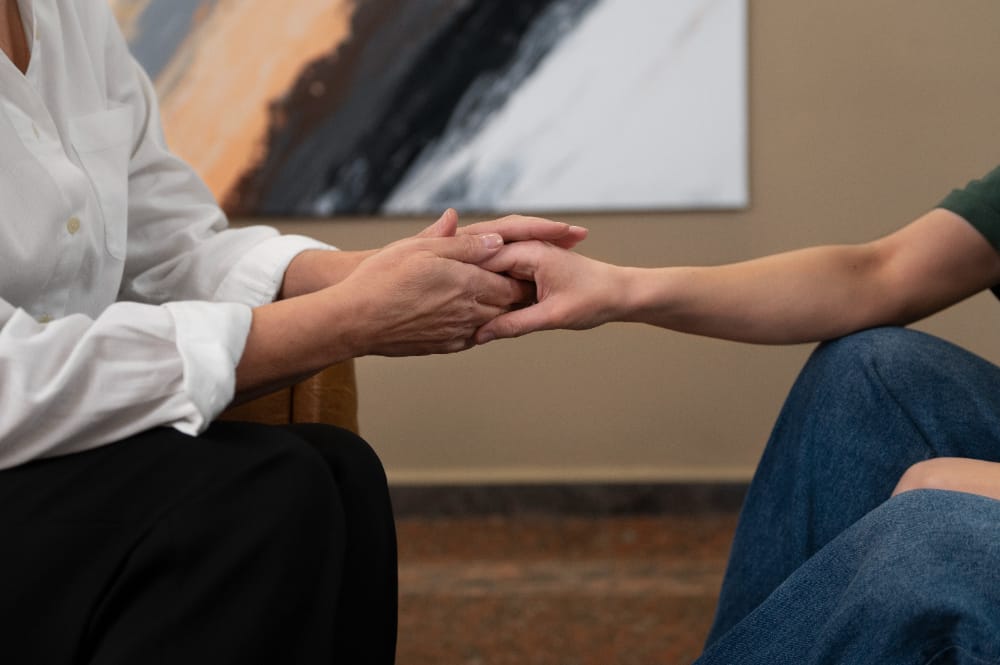The 90837 CPT code is one of the most commonly used CPT codes for extended therapy sessions, but there are specific rules and requirements for using it.
If you don’t document correctly or understand what qualifies, you could have insurance claims or audit issues.
Next, we’ll cover the key aspects of the 90837 CPT code, from its intended use to best practices for documentation.
What Is the CPT Code 90837
CPT Code 90837 is used for 60-minute therapy sessions; it’s designed specifically for licensed mental health professionals who provide in-depth psychotherapy.
It gives clients the space they need to express their concerns, develop coping methods, and manage emotional or behavioral difficulties.
This code works for various therapy types, like cognitive-behavioral therapy (CBT), eye movement desensitization and reprocessing (EMDR), and other psychotherapeutic methods.
To qualify for 90837, the session must include at least 53 minutes of face-to-face time. This ensures the patient benefits from a longer, more detailed session tailored to their needs.
Documentation Requirements for 90837 CPT code
Documentation is necessary when billing for 90837. Insurers often closely review claims for longer sessions, so recording everything properly is vital to justify the duration.
Licensed Clinical Social Workers (LCSW)
Licensed Clinical Social Workers are mental health professionals trained to diagnose and treat emotional, behavioral, and mental health disorders. They provide therapy, crisis intervention, and case management services, often focusing on social and environmental factors that impact well-being. LCSWs work in various settings, including hospitals, community clinics, schools, and private practice. They hold a master’s degree in social work (MSW) and must complete supervised clinical experience and licensure exams.
- 90840 CPT Code: LCSWs can bill for crisis psychotherapy services, including 90840, which refers to an additional 30 minutes of crisis therapy beyond the first 60 minutes (coded as 90839). This is used for urgent mental health interventions.
Licensed Professional Counselors (LPC)
Licensed Professional Counselors specialize in providing therapy for individuals, couples, and groups to address a wide range of mental health concerns. They help clients develop coping strategies, improve communication skills, and manage issues such as anxiety, depression, trauma, and relationship challenges. LPCs typically hold a master’s degree in counseling or a related field and must complete supervised clinical hours and pass a licensing exam. They work in settings such as private practices, mental health clinics, and rehabilitation centers.
- 90840 CPT Code: LPCs may use 90840 when providing extended crisis therapy sessions that go beyond the initial 60 minutes of crisis intervention (90839), typically for individuals in acute distress.
Licensed Marriage and Family Therapists (LMFT)
Licensed Marriage and Family Therapists focus on relational and systemic issues, working with individuals, couples, and families to improve communication and resolve conflicts. They are trained to address family dynamics, marital distress, parenting challenges, and other interpersonal issues. LMFTs use evidence-based therapeutic approaches, such as cognitive-behavioral therapy (CBT) and emotionally focused therapy (EFT), to support clients in achieving healthier relationships. They must earn a master’s degree in marriage and family therapy (or a related field), complete supervised clinical experience, and pass a licensing exam.
90840 CPT Code: LMFTs can bill 90840 when providing additional crisis psychotherapy beyond the initial 60-minute session (90839), often in situations where immediate therapeutic intervention is required.
Clinical Psychologists (PhD or PsyD)
Clinical Psychologists are highly trained mental health professionals specializing in diagnosing and treating mental health disorders through psychotherapy, psychological assessments, and research-based interventions. They work with clients across all age groups, addressing conditions such as depression, anxiety, PTSD, and personality disorders. Clinical psychologists may also conduct psychological testing for intelligence, personality, and neuropsychological functioning. They hold either a Doctor of Philosophy (PhD) or a Doctor of Psychology (PsyD) degree and must complete supervised clinical training and licensure requirements. Unlike psychiatrists, they do not prescribe medication.
- 90840 CPT Code: Clinical psychologists use 90840 when conducting extended crisis psychotherapy sessions that require an additional 30 minutes beyond the initial hour of crisis intervention (90839).
Psychiatrists (MD or DO)
Psychiatrists are medical doctors specializing in mental health, including the diagnosis, treatment, and prevention of psychiatric disorders. They can prescribe medication and provide psychotherapy, often working with individuals who have severe mental illnesses such as schizophrenia, bipolar disorder, and major depressive disorder. Because they have completed medical school (MD or DO), psychiatrists are trained to assess both biological and psychological factors affecting mental health. They may work in hospitals, private practices, research institutions, or community mental health centers.
- 90840 CPT Code: Psychiatrists can bill 90840 when providing prolonged crisis psychotherapy, typically when a patient requires urgent mental health intervention beyond the initial 60-minute crisis therapy session (90839).
Time Frame for 90837 CPT code
To bill using CPT Code 90837, the session must last at least 53 minutes and be direct, face-to-face.
Make sure to record start and end times precisely. Remember, administrative tasks like scheduling, note-writing, or payment processing don’t count toward the session duration.
If the session is shorter than 53 minutes, using a different code is better. Accuracy is key to ensuring that billing aligns with actual session lengths.
Differences Between 90837, 90834, and 90832
Therapists have three main CPT codes for individual therapy sessions, each based on the duration; choosing the right one ensures accurate billing and documentation.
Here’s a breakdown:
- 90837: 60-Minute Sessions. As noted before, it applies to sessions lasting 60 minutes, with at least 53 minutes of direct interaction. Suitable for addressing complex issues needing extended time.
- 90834: 45-Minute Sessions. This is used for sessions between 38 and 52 minutes. It’s suitable for situations that need more time than a brief session but don’t require a full hour.
- 90832: 30-Minute Sessions. This code applies to shorter therapy sessions lasting between 16 and 37 minutes. It’s often used for brief check-ins or focused interventions.
Insurance Considerations for 90837 CPT code
Insurance providers often closely review 90837 claims due to the longer session duration and higher reimbursement rate.
Proper documentation is vital to avoiding issues. Ensure to keep in mind these aspects:
- Scrutiny and Audits: Due to higher reimbursement, insurers may audit claims involving 90837. Clear documentation helps prevent disputes.
- Justifying Medical Necessity: Explain why a shorter session code wouldn’t suffice, emphasizing symptom severity or case complexity.
- Documentation to Support Use: Include detailed notes on the patient’s condition, treatment methods, and progress to justify the session length.
Licensing Requirements for Using CPT Code 90837
Not all mental health professionals can bill under CPT Code 90837; only these licensed providers can use this code:
- Clinical Psychologists (PhD or PsyD).
- Psychiatrists (MD).
- Licensed Clinical Social Workers (LCSWs).
- Licensed Professional Counselors (LPCs).
- Licensed Marriage and Family Therapists (LMFTs).
Importance of Accurate Documentation
Accurate and detailed documentation is essential for ensuring proper reimbursement, maintaining ethical and legal compliance, and providing high-quality patient care. Thorough records help justify the necessity of services and demonstrate that the treatment provided aligns with insurance requirements.
When billing for crisis psychotherapy, including the 90840 CPT Code, documentation must clearly support the claim for a 60-minute session (90839) plus any additional time under 90840 by detailing the patient’s urgent needs and the interventions applied.
Key Components of Proper Documentation
- Session Start and End Times
- Clearly record the exact time the session began and ended.
- Specify whether additional time beyond 60 minutes was required, supporting the use of 90840 for extended crisis intervention.
- Patient’s Presenting Condition
- Describe the severity and urgency of the crisis, including any risk factors such as suicidal ideation, self-harm behaviors, or extreme distress.
- Include information on how the crisis developed and why immediate intervention was necessary.
- Therapeutic Interventions Used
- Document the specific techniques and approaches applied, such as de-escalation strategies, cognitive restructuring, or grounding exercises.
- Note any safety planning, referrals, or coordination with other healthcare providers.
- Patient’s Response to Treatment
- Detail how the patient responded to the intervention and whether the crisis was stabilized.
- If additional time was needed beyond the initial 60 minutes, justify why 90840 was required.
- Follow-Up and Next Steps
- Record recommendations for continued care, including follow-up appointments, medication adjustments, or referrals to additional support services.
- Ensure documentation aligns with ethical and legal standards for continuity of care.
Using CPT Code 90837: Frequently Asked Sections
Wondering how to use CPT Code 90837 correctly? The following questions and answers cover the most important details about it:
1. What should I do if an insurance provider questions my use of 90837?
If that occurs, provide thorough documentation outlining the session’s medical necessity, including symptom severity or case complexity.
2. Are telehealth sessions eligible for billing under 90837 CPT code?
Many insurers accept 90837 for telehealth sessions if they meet the time requirements. Always confirm with each insurance provider.
3. Can a trainee or intern bill for 90837 if supervised?
Generally, only licensed professionals can bill for 90837. However, some insurers may allow billing under a supervisor’s credentials if they oversee the session directly.
4. Are there limits on how often 90837 sessions can be billed?
Some insurance companies limit the frequency of 90837 sessions. Review policy guidelines to ensure compliance and avoid claim denials.
5. How can I justify the medical necessity for a 60-minute session?
Document the patient’s symptoms and therapeutic needs, such as trauma or severe conditions, and explain why shorter sessions wouldn’t be sufficient.
6. Is it possible to switch codes if the session duration changes mid-session?
Yes, if the session ends up being shorter (e.g., 45 minutes), you can switch to CPT Code 90834 and update the documentation accordingly.
7. Is 90837 appropriate for couples therapy?
No, 90837 is for individual therapy sessions. Use codes like 90847 (family therapy with the patient present) for couples therapy.
8. Do I need to update my billing practices based on changes to CPT codes?
Yes, staying updated on any annual changes to CPT codes and reimbursement rates is essential to ensure compliance.
9. How does CPT Code 90837 affect overall reimbursement rates for my practice?
90837 has a higher reimbursement rate, which can boost revenue per session. However, detailed documentation is necessary to support the code’s use effectively.
Manage Your Practice’s Billing The Smart Way
Getting the most out of CPT Code 90837 is crucial for delivering effective care and ensuring precise billing in your practice. This improves patient outcomes and strengthens your services’ financial health and efficiency.
If you need help with billing or understand the nuances of CPT codes, Medical Claims Billing is here to help. Our billing services for independent providers prioritize quality, detail, and responsiveness.
Ready to see tangible improvements in your billing? Let’s get started.












